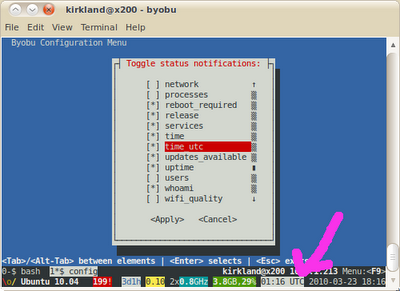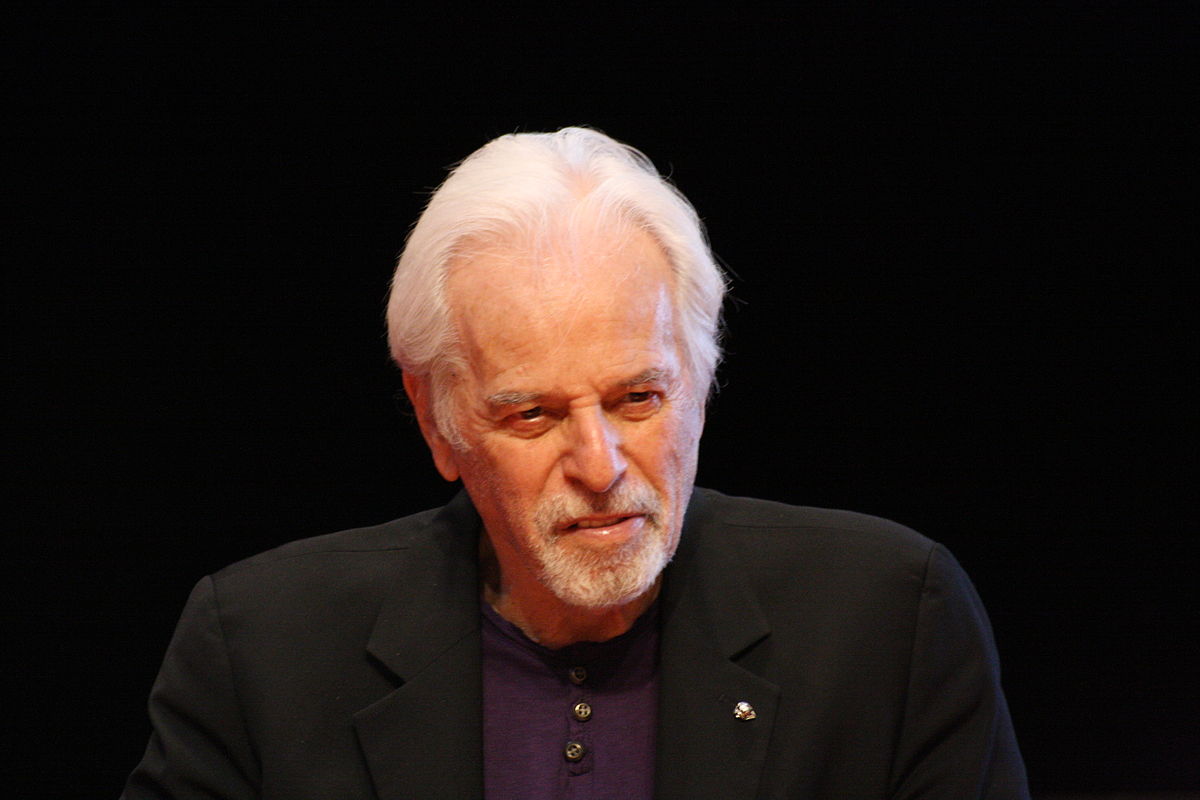ZAZ – La Historia De Un Amor
Month: March 2017
Coloratura soprano
Soubrette
Lyric soprano
Spinto soprano
IMDb Picks
Most Decorated Oscar Films of All Time
Source: IMDb Picks – IMDb
Il trittico
Il trittico (The Triptych) is the title of a collection of three one-act operas, Il tabarro, Suor Angelica, and Gianni Schicchi, by Giacomo Puccini. The work received its world premiere at the Metropolitan Opera on 14 December 1918.
Source: Il trittico – Wikipedia
package management – How can I tell, from the command line, whether the machine requires a reboot? – Ask Ubuntu
|
When you install certain updates (e.g. a new kernel) in Ubuntu Desktop, you get an indication that a reboot is required (in Lucid, the logout icon turns red). How can I check, from the command line, whether an Ubuntu server requires a reboot? I could grep for ‘System restart required’ in |
|||||
|
|
You can simply check if the file For example, any of these would tell you “no such file” or “file not found” if you do not need to reboot, otherwise (if you need to reboot) the file would exist and these commands would show information about the file: In a bash script, you can use: |
|||||||||||||||||||||
|
|
In the package debian-goodies is a command named checkrestart which is quite useful. Its output can help you avoid a full reboot. |
|||||||||||||
|
|
Normally if the file exists you should reboot. You can see if this file is there by using this simple command in gnome-terminal. |
||||
|
Aswell as the most direct methods written by others there is a handy indication if you use byobu – a set of scripts to make GNU screen a little more user friendly. It shows a set of information at the bottom of the screen, and that can include whether a reboot is required – along with whether updates are available, the time, uptime, memory used … In this screenshot you can see from the If a reboot is required then this will be indicated by the symbol
|
||||
|
The You can check the content of this file in terminal by using |
||||
|
If you have the reboot-notifier or update-notifier-common packages installed, then you get the files /var/run/reboot-required and /var/run/reboot-required.pkgs reboot-notifier is newer in Ubuntu Wily and Xenial. Debian stretch, but in jessie-backports update-notifier-common Is older, in all Ubuntu versions including Xenial and Debian Wheezy. Not in Debian Stretch or Jessie. ( There is some background to the reboot-notifier package athttps://feeding.cloud.geek.nz/posts/introducing-reboot-notifier/ ) If you don’t have these packages installed then you can compare the version of the linux package installed, with the version running: You can see here that the latest installed kernel is 3.16.7-ckt20-1+deb8u4 but the kernel running is 3.16.7-ckt20-1+deb8u3. So this system needs a reboot. The u4 vs u3 right at the end. You might need to scroll the box above. In the /proc/version, it is the version near the end of the line that matters. The very minor version code change is typical of a Debian security kernel update |
Why is “No new release found” when upgrading from a LTS to the next? – Ask Ubuntu
|
I’m following the upgrade instructions on Ubuntu’s website, but on launching the upgrade tool I get this response: Am I doing something wrong? Is there a workaround? Here’s my |
|||||
|
|
According to Ubuntu Engineering Foundations team manager Steve Langasek:
If you choose to upgrade before then, you can pass the This question explains the justification for waiting for the prompt. |
|||||||||||||||||||||
|

|
If one has no access to a GUI and wants the update on terminal:
That way I could upgrade a 12.04 to 12.10. For the
|
|||||
|
Source: Why is “No new release found” when upgrading from a LTS to the next? – Ask Ubuntu
Inferno (2016)
Directed by Ron Howard. With Tom Hanks, Felicity Jones, Irrfan Khan, Ben Foster. When Robert Langdon wakes up in an Italian hospital with amnesia, he teams up with Dr. Sienna Brooks, and together they must race across Europe against the clock to foil a deadly global plot.
Source: Inferno (2016) – IMDb
Alejandro Jodorowsky
Alejandro Jodorowsky Prullansky (Spanish: [aleˈxandɾo xoðoˈɾofski]; born 17 February 1929)[1][2][3]is a Chilean[4][5]-French film and theatre director, screenwriter, playwright, actor, author, poet, producer, composer, musician, comics writer, and spiritual guru. Best known for his avant-garde films, he has been “venerated by cult cinema enthusiasts” for his work which “is filled with violently surrealimages and a hybrid blend of mysticism and religious provocation”.[6]
Born to Jewish-Ukrainian and Polish parents in Chile, Jodorowsky experienced an unhappy and alienated childhood, and so immersed himself in reading and writing poetry. Dropping out of college, he became involved in theater and in particular mime, working as a clown before founding his own theater troupe, the Teatro Mimico, in 1947. Moving to Paris in the early 1950s, Jodorowsky studied mime under Étienne Decroux before turning to cinema, directing the short film Les têtes interverties in 1957. From 1960 he divided his time between Paris and Mexico City, in the former becoming a founding member of the anarchistic avant-garde Panic Movement of performance artists. In 1966 he created his first comic strip, Anibal 5, while in 1967 he directed his first feature film, the surrealistFando y Lis, which caused a huge scandal in Mexico, eventually being banned.
His next film, the acid western El Topo (1970), became a hit on the midnight movie circuit in the United States, considered as the first-ever midnight cult film, garnering high praise from John Lennon, which led to Jodorowsky being provided with $1 million to finance his next film. The result was The Holy Mountain (1973), a surrealist exploration of western esotericism. Disagreements with the film’s distributor Allen Klein, however, led to both The Holy Mountain and El Topo failing to gain widespread distribution, although both became classics on the underground film circuit.[6]
After an aborted attempt at filming Frank Herbert‘s 1965 science fiction novel Dune, Jodorowsky produced three more films, the family film Tusk (1980), the surrealist horror Santa Sangre (1989), and the failed blockbuster The Rainbow Thief (1990). Meanwhile, he has simultaneously written a series of science fiction comic books, most notably The Incal (1980–1989), which has been described as having a claim to be “the best comic book” ever written,[7] and also The Technopriests and Metabarons. Accompanying this, he has also written books and regularly lectures on his own spiritual system, which he calls “psychomagic” and “psychoshamanism” and which borrows from his interests in alchemy, the tarot, Zen Buddhism and shamanism.[8] His son Cristóbal has followed his teachings on psychoshamanism; this work is captured in the feature documentary Quantum Men, directed by Carlos Serrano Azcona.
Source: Alejandro Jodorowsky – Wikipedia




